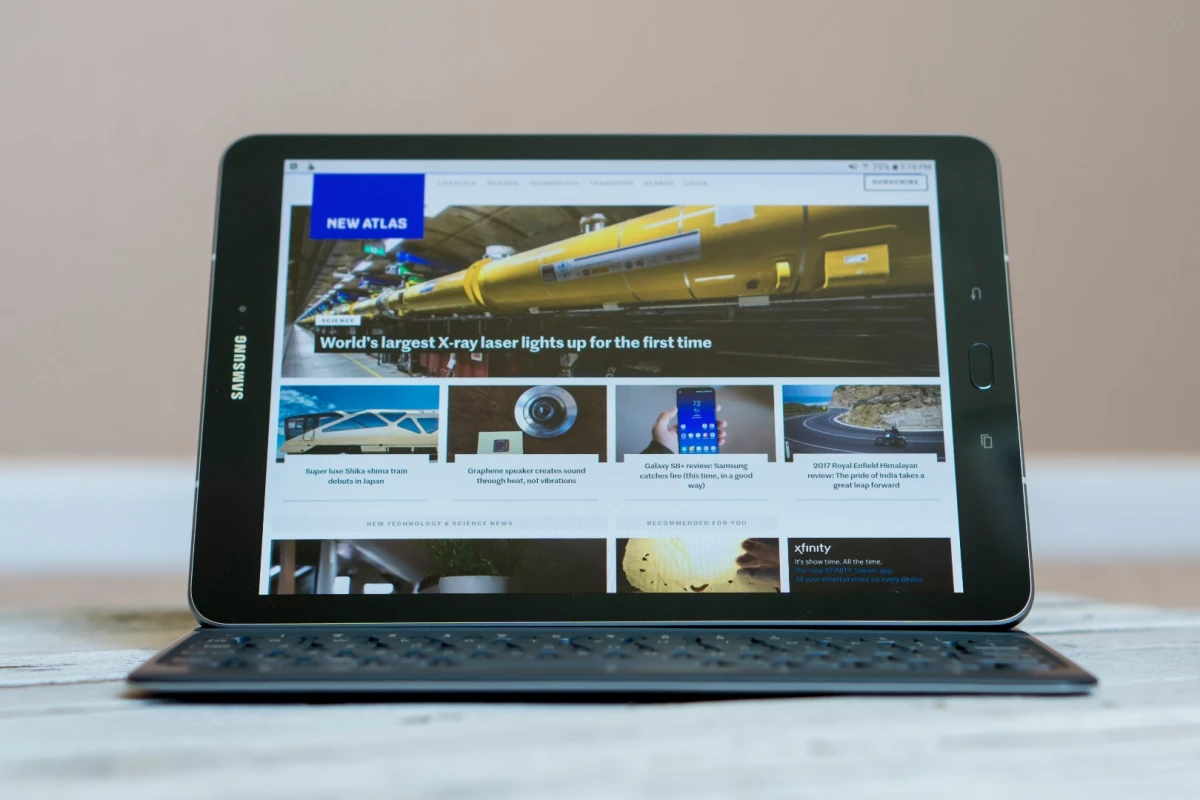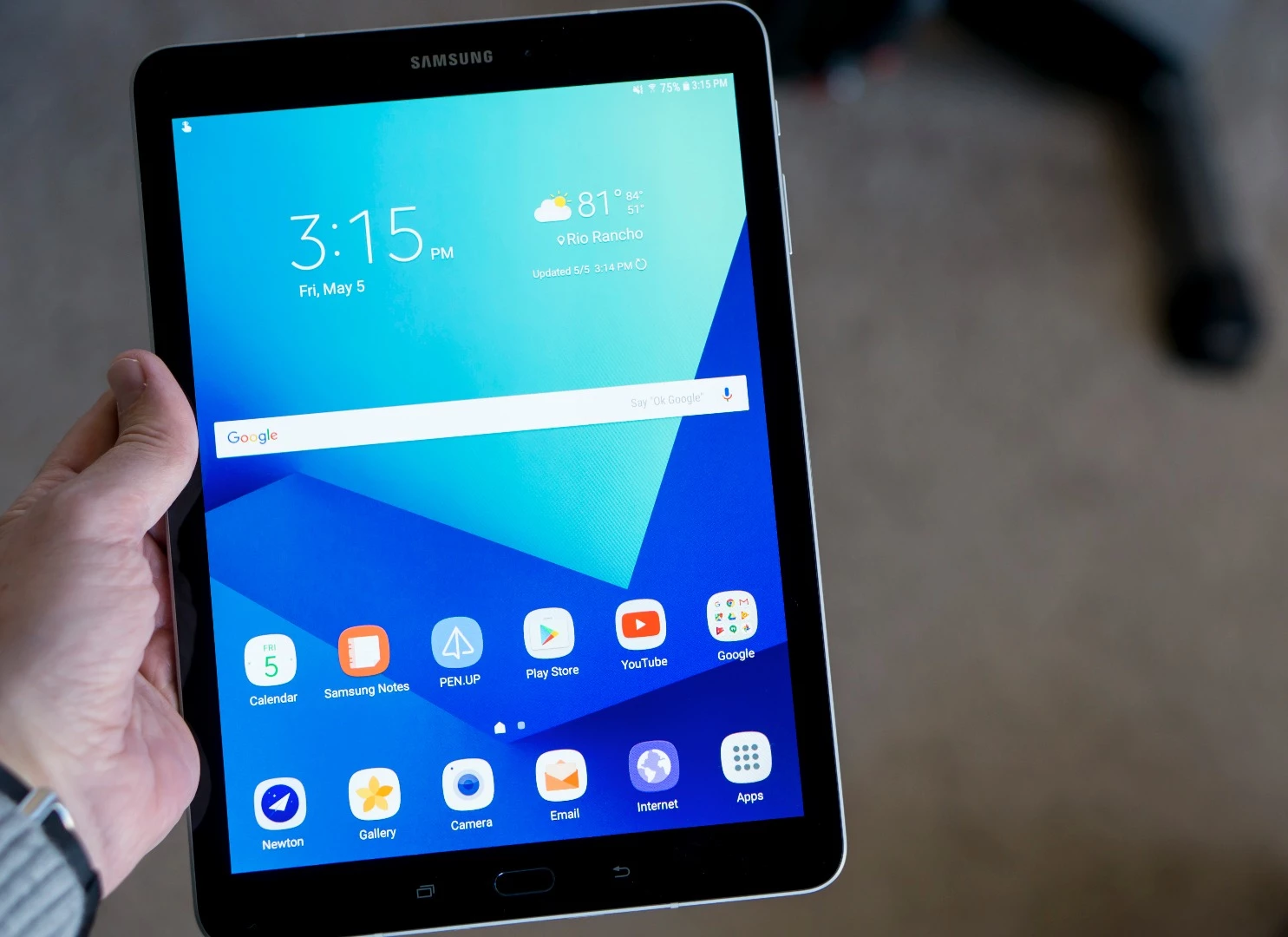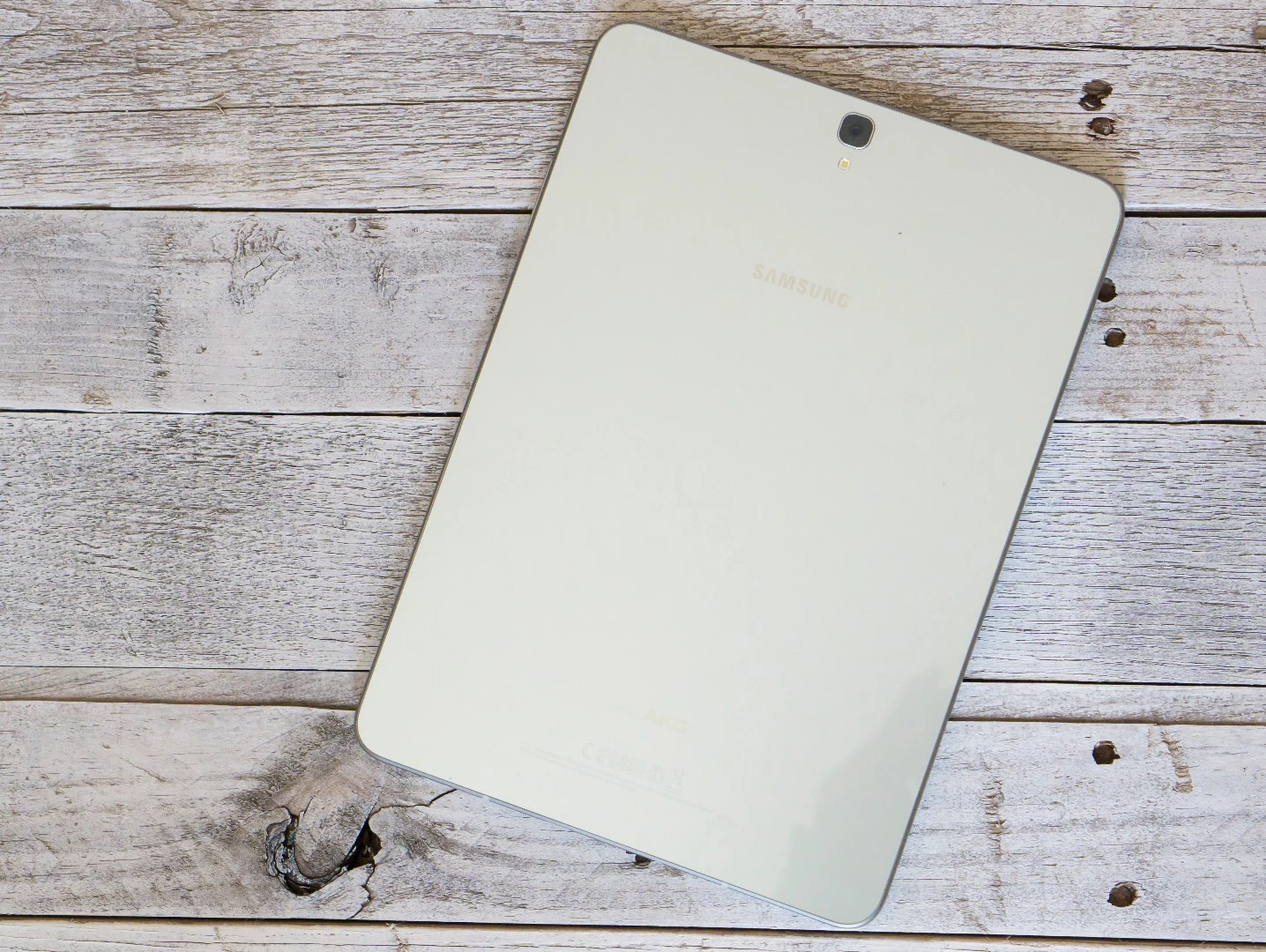Samsung's high-end tablet line took the year off in 2016, but the company recently dived back in with the Galaxy Tab S3. While it serves as a viable alternative to the 9.7-in iPad Pro, big-screen smartphones are getting better and better – posing the question (once again) of whether you need a tablet at all. Read on, as we review the Samsung Galaxy Tab S3.
As an owner of the iPad Pro 9.7, I found the Galaxy Tab S3 to be very familiar from the start. Compared to the iPad, the new Tab has nearly identical dimensions and is just a smidge lighter, they both have the same screen size (and 4:3 aspect ratio) and pixel resolution is even. If Apple's industry influence has waned some in recent years, it certainly hasn't faded completely.
While the Tab S3 may not be forging much new ground, it does successfully play the part of the best Android alternative to Apple's best 9.7-in tablet. Apart from the possible exception of Google's tablet app selection, I can switch from one slate to the other without noticing a major drop-off one way or the other.

One advantage the Tab S3 brings to the table, though, is that its stylus is included with the device. You get an S Pen in the box (just like the ones that ship with Galaxy Note smartphones), while the iPad's Apple Pencil rings up as a separate US$99 purchase. The Apple Pencil's build does look and feel higher-end, but unless you're using it to make art (Apple's has tilt sensitivity that allows shading), I wouldn't say the Pencil is worth $99 more than the Tab's S Pen.
The Tab's display looks terrific, and its AMOLED screen offers richer colors and deeper blacks than the iPad's IPS screen.

For the first time, Samsung brought its glass back/aluminum frame smartphone design language to the world of tablets. It sounds like an odd choice for a tablet, but feels smooth in hand. While we didn't dare drop test our review unit, the potential for greater breakability of glass may be something to consider if you're clumsy with your tablets and don't use cases.
Speaking of cases, Samsung offers an optional keyboard case that's a big improvement over the one in 2015's Galaxy Tab S2. Not because of a much-different typing experience, but because the S3 tablet magnetically connects to the case. The combination of Galaxy Tab S2 and keyboard required snapping nubs into place: It was difficult to connect and could lead to a scratched device. No such worries with the S3 and its $130 keyboard.
The keyboard unfortunately has a fixed screen angle, but it's the same situation on Apple's iPad Pro Smart Keyboard.
Another minus in the keyboard's column is that the Tab's screen doesn't automatically turn off when you fold the keyboard cover over it.

If you're considering the Galaxy Tab S3, the question isn't whether it's a high-quality tablet – it is – but whether you need a tablet at all. And if you do, whether you have any reason to pick it over Apple's similar (and identically-priced) offering in the iPad Pro 9.7.
While large-screen smartphones have been eating into tablet sales for several years, the tablet's odds got a little worse recently with the release of the Galaxy S8, S8+ and LG G6 (and likely again late this year, with the rumored iPhone 8). They all have screens that span nearly the entire face of the phone, making bigger displays a reality for folks who don't want a device that feels like a Sherman tank in hand or pocket. While their size doesn't come anywhere close to that of a 9.7-in tablet, they can serve many of the same purposes – perhaps saving you an extra purchase and whittling your mobile device collection down by one.

What about picking between the Tab S3 and iPad Pro 9.7? If you're platform agnostic, then I'd give the edge to the iPad – not because of hardware advantages, but because, in the tablet app department, the App Store is still a bit friendlier than the Play Store. If you own other Android devices, though, or just aren't a fan of Apple's hardware or ecosystem, the Galaxy Tab S3 is as an excellent alternative.
The Galaxy Tab S3, a standout product in a waning category, costs $600 for 32 GB storage (expandable by microSD) and bundled stylus. It's available now.
Product page: Samsung









